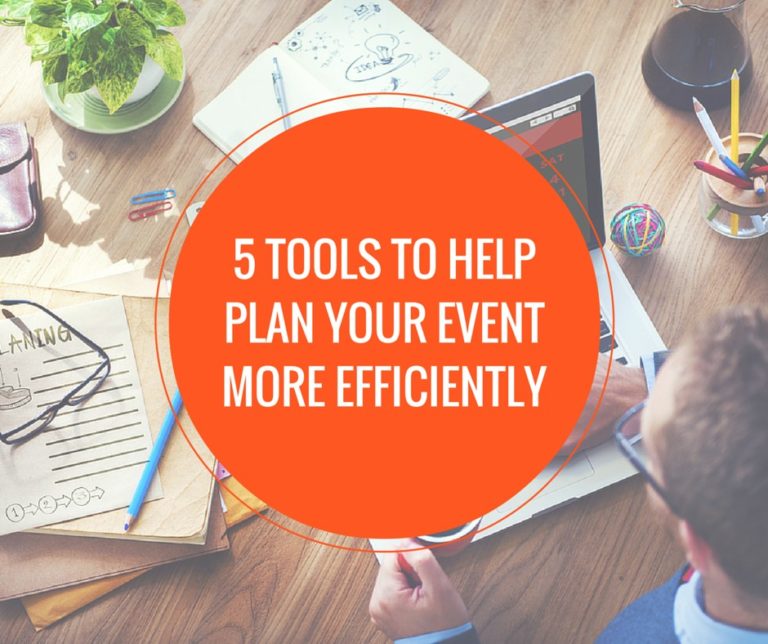In 2020, the global event industry was worth about $890 million, with most marketers spending between 20-50% of their overall marketing budget on events. If you’ve been thinking about joining the event industry by starting an event planning business, chances are you’re struggling to know where to begin. With so many moving parts, it can be difficult to lock down a comprehensive plan.
Event planners help companies, corporations, and individuals plan and execute any type of event, whether it be a product promotion for an up-and-coming company or a wedding for a beautiful couple. With each event comes a long list of details to sort through to ensure the success of your event. A great way to ensure that your event planning business can handle these events is to have a solid business plan in place. This allows your business to approach each event with strategy and organization. Keep reading to learn more about the do’s and don’ts when it comes to starting your own event planning business.
Definitely DO This When Starting an Event Planning Business
When starting any business, there are often foundational tasks to be completed to ensure that your business is off to a good start. These items will help you identify the direction of your event planning business, provide you with the necessary documents needed to make your business official, and set you up for success. Some key steps that any new event planner should take when starting their business include the following:
Create a Detailed Business Plan
A business plan is an essential first step to creating your event planning business. It serves as the ultimate guide for your business and can be used to communicate your goals to investors. A business plan includes the operational plan, financial plan, and overall objective of your business. If you’re wondering where to begin with this step, be sure to consider the following components:
Startup Costs
There are startup costs associated with starting your event planning business that will give you an idea of your overall scope and what you have to work with before you generate a profit. When figuring out what your startup costs will include, you should consider expenses like:
- office space
- equipment and supplies
- utilities
- licenses and permits
- advertising and marketing
- digital management
- employee salaries
It is important to note that these costs will vary with each business. Some of these costs will be an upfront, one-time fee, while others will remain constant throughout your business’ lifetime. These costs should provide you with a detailed idea of what your event planning business will need to begin, as well as an estimate of what your profits will be in the future.
Target Audience
Identifying your target audience is a crucial part of every business plan, especially for businesses in the event planning industry where there are several different event types and audiences to reach. You should identify your target audience by considering factors like gender, age, location, and social status. As an event-planning business, you should also consider who you will be serving. This can include businesses, sports teams, children, couples, and individuals.
Identifying your target audience is important when it comes to curating the perfect marketing strategy. Understanding what marketing tactics will work for your target audience, as well as how to meet them where they are, will ensure success. Targeting a specific group will also allow you to introduce yourself to a like-minded community that will lead you to more customers.
Marketing Strategies
A marketing strategy is essentially a business’s plan for reaching potential customers and turning them into conversions. Without a marketing strategy, your business could fail to reach your target market. A successful marketing strategy will include the four P’s of marketing: product, place, price, and promotion. Combined, these tools are used to accomplish a company’s goals.
Marketing strategies should be centered around your business’s value proposition, which communicates to consumers what your brand is all about. This is also what sets you apart from your competition. As you will most likely be marketing on multiple channels to reach your audience where they are, it is important to include event marketing ideas for each channel within your marketing strategy.
Business Operations
Business operations refer to the daily activities that your business will partake in to increase the value of your business, as well as your profit. Identifying your business operations will allow your company to run smoothly, remain organized, and continue growing. As an event planning business, some of these operations can include:
- digital marketing
- responding to potential clients
- organization and planning of upcoming events
- receiving feedback from previous clients
- task delegation
- financial management
Staying on top of your business’s operations is what allows your business to flourish. Successful completion of these daily tasks will keep your business moving toward success, get you closer to achieving your goals, and keep you on track with your overall business strategy.
Strengthen Your Event Planning Skill Set
With several event planning businesses out there already, it can be difficult to set yourself apart from the competition. Marketing your event planning skill set is a great way to show potential customers why you would be the best fit for them. When it comes to starting your event planning business, identifying your event planning skill set should be a primary focus.
When strengthening and adding to your event skill set, it is important to consider the needs of your target audience. For example, if your target audience consists of brides-to-be, it would be beneficial to sharpen skills that benefit weddings such as floral arrangement, color palette decisions, seating charts, and wedding reception activities.
Obtain Appropriate Certifications and Business Insurance
Creating any business requires a slew of legal documents that make your business official and protected. Obtaining these documents is crucial in ensuring that your business is recognized officially and can continue running, which is something that potential customers will also look for in their search for an event planning business. These documents also include business event insurance, which will protect your company from several incidents that can lead to a loss for your business. A study showed that 75% of small businesses dealt with an insurable event in 2020, which further proves the importance of business insurance and other protective documents.
Definitely DON’T Do This When Starting an Event Planning Business
There are a few common mistakes that can be made when beginning an event planning business. Although these decisions may seem appealing at the time, whether financially or strategically, it is important to understand the long-term impacts. Here are a few things you should avoid when it comes to event planning:
Skip Out on Quality Event Management Software
Event management software is an essential part of maintaining a well-organized event planning business that runs efficiently. Events oftentimes require several stages of detail-oriented tasks that need to be completed in order for the event to run smoothly. Event management software is a tool that can be used by event planners to help run through the life cycle of an event and access all of the necessary information under one platform.
When it comes to choosing your event management software, you will find that you have several options. Although this may seem like an opportunity to save money, it’s important to note that you should not skip out on quality event management software, as it can greatly affect your event planning process. You will want to find an event management software that streamlines your work, is available on a single platform, allows for collaboration, and provides you with all of the necessary tools that your event needs to be successful.
Sell Event Planning Services to Everyone
Although it’s tempting to sell your business’s services to anyone and everyone, it is actually more effective to focus on your target audience. When you market your event planning services to everyone, you are missing an opportunity to connect with your consumers on a more personal level. This also poses a risk financially, as you are spending more money on marketing to a wide range of people.
It’s okay to market to different groups of people as long as they fall within your target market. For example, if your event planning services are geared toward individual parties, you might market to both children and adults. This is an instance where marketing to multiple groups would be beneficial to your business.
Put Your Best Foot Forward With Top-of-the-Line Event Technology
Starting your own event planning business can be intimidating as you begin to navigate the various details that go into creating a successful business. A crucial part of starting your event planning business is considering the use of event technology like event management software. Event management software is an easy way to manage your daily workload as an event planner, keep an organized schedule, connect with your staff, and follow the analytics of your business. Get a jump start on your event planning business by utilizing our event management software, which will help make your job easier and your customers happier.






